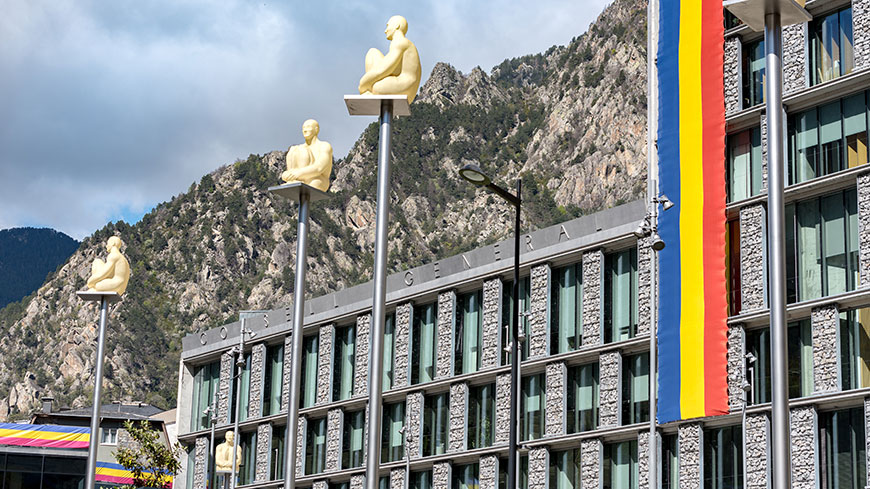Andorra has made progress in the development of a legal, institutional and policy framework to combat human trafficking, but should take additional measures to identify potential victims, according to a report issued today by the Council of Europe’s Group of Experts on Action against Trafficking in Human Beings (GRETA).
In its third report evaluating Andorra’s implementation of the Council of Europe Convention on Action against Trafficking in Human Beings, GRETA welcomes the adoption in 2021 of a Strategic Policy on Combating Trafficking in Human Beings. Another positive development is the broadening of the scope of the crime of trafficking in human beings to include forced labour, forced services and forced begging. The report also welcomes the introduction in 2021 of a regulation entitling victims of trafficking to free legal aid, regardless of their residence status, and the adoption of a specific legal provision on the non-punishment of victims of trafficking.
For the first time since the entry into force of the convention in Andorra in 2011, a presumed victim of trafficking for the purpose of sexual exploitation was identified in the country in 2021. While the courts ultimately decided not to classify the offence as trafficking in human beings, GRETA welcomes the authorities’ efforts to treat the person concerned as a victim of trafficking and to bring the case to justice.
The report notes that due to the strong demand for foreign labour, there are risks of labour exploitation in the country, in particular in the sectors of domestic work, seasonal work, construction and agriculture. The authorities are also attentive to possible cases of human trafficking for the purpose of forced criminality.
GRETA expresses concern over the restrictive labour and immigration legislation which could encourage labour exploitation or trafficking in human beings since victims might be reluctant to report their situation for fear of losing their job or being deported. GRETA urges the Andorran authorities to build awareness among migrant workers of the risks linked to trafficking, strengthen the capacities and resources of labour inspectors, and increase the number of inspections carried out at the Labour Inspectorate’s own initiative.
At the same time, GRETA calls on the Andorran authorities to ensure that human trafficking offences are proactively and promptly investigated, regardless of whether a complaint is filed by the victim.
GRETA welcomes the adoption of a list of indicators enabling the identification of victims of trafficking and the training offered to relevant professionals. However, it urges the Andorran authorities to take additional measures to identify potential victims of trafficking, including among migrant workers and people in an irregular situation, by developing co-operation with civil society organisations and professional training.
Furthermore, GRETA remains concerned by the restrictive conditions for issuing residence permits to trafficking victims and urges the Andorran authorities to amend the legislation.
The Group of Experts on Action against Trafficking in Human Beings (GRETA) is an independent body which monitors the way countries implement the Council of Europe Convention on Action against Trafficking in Human Beings. All 46 member states of the Council of Europe are bound by the Convention, as well as two non-member states, Belarus and Israel.




